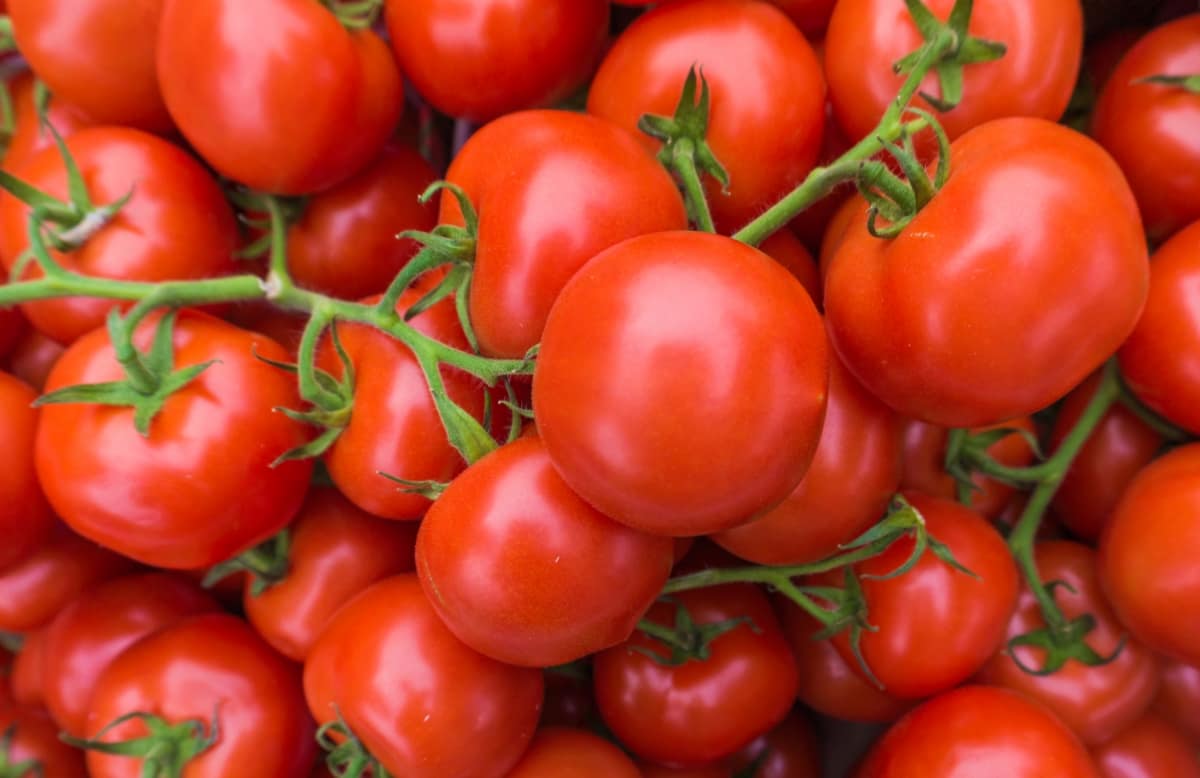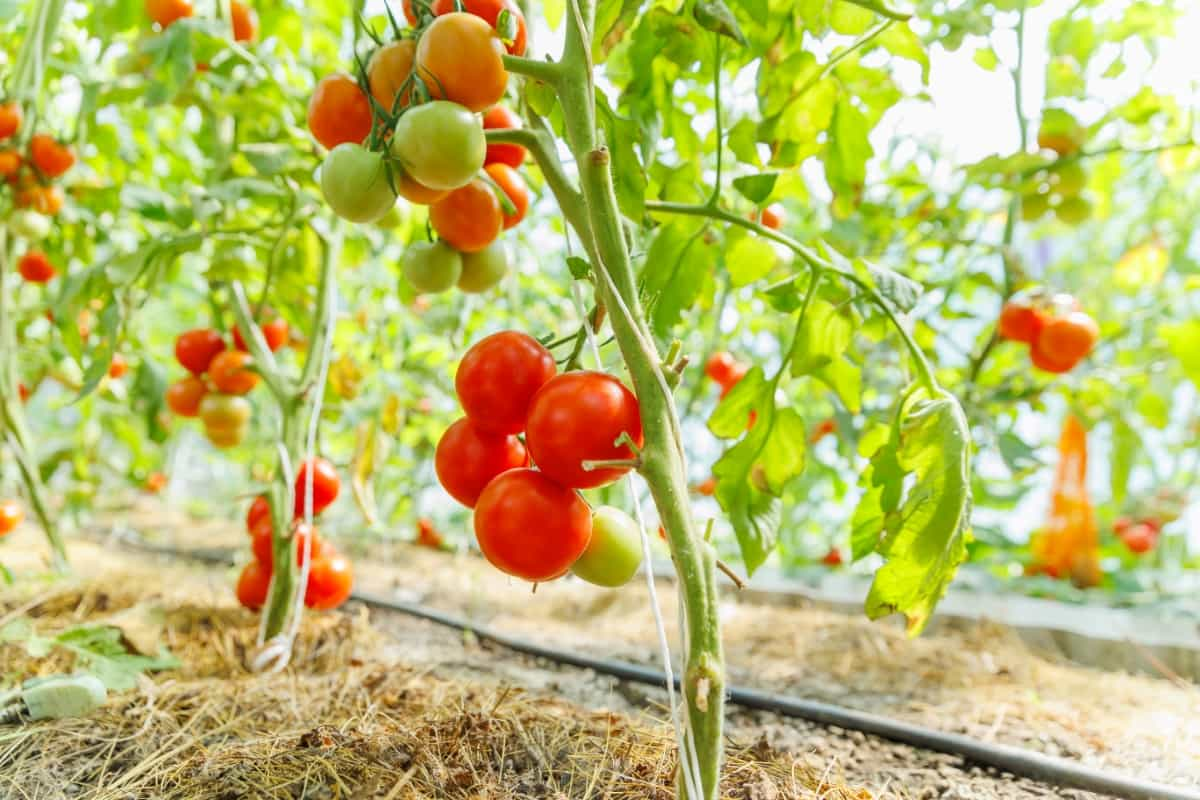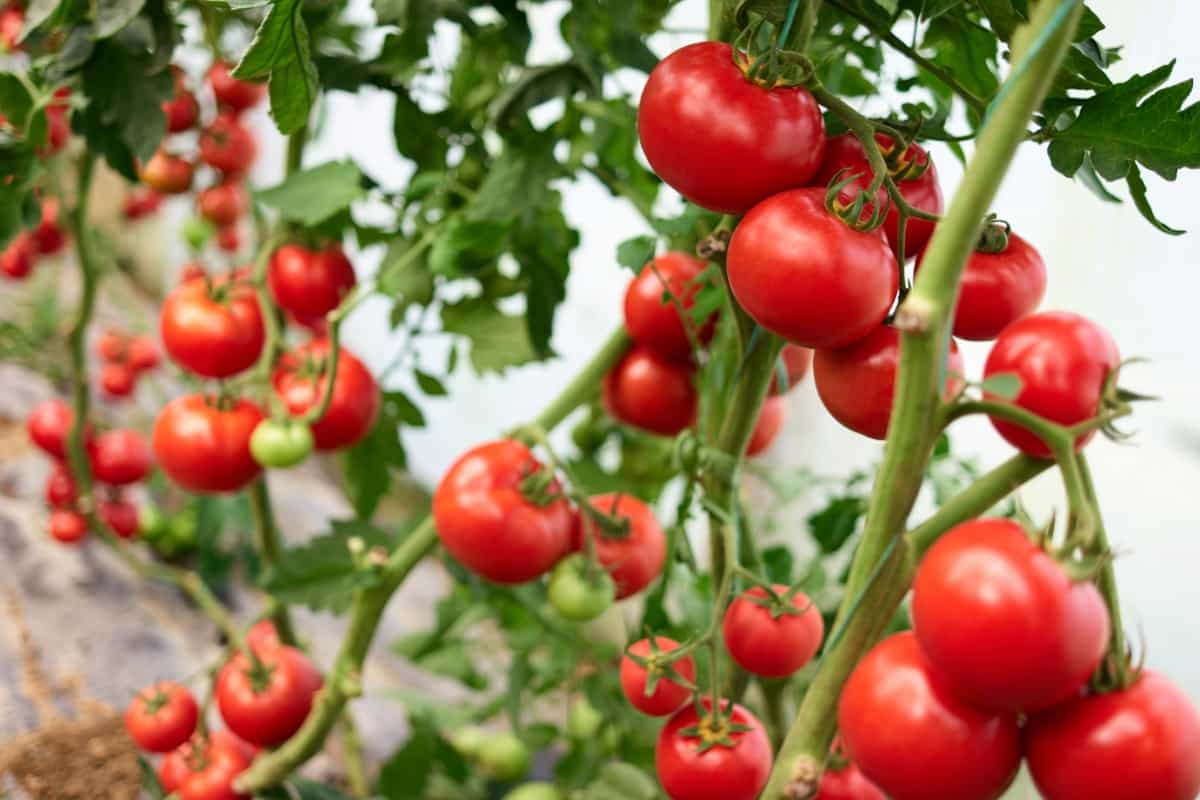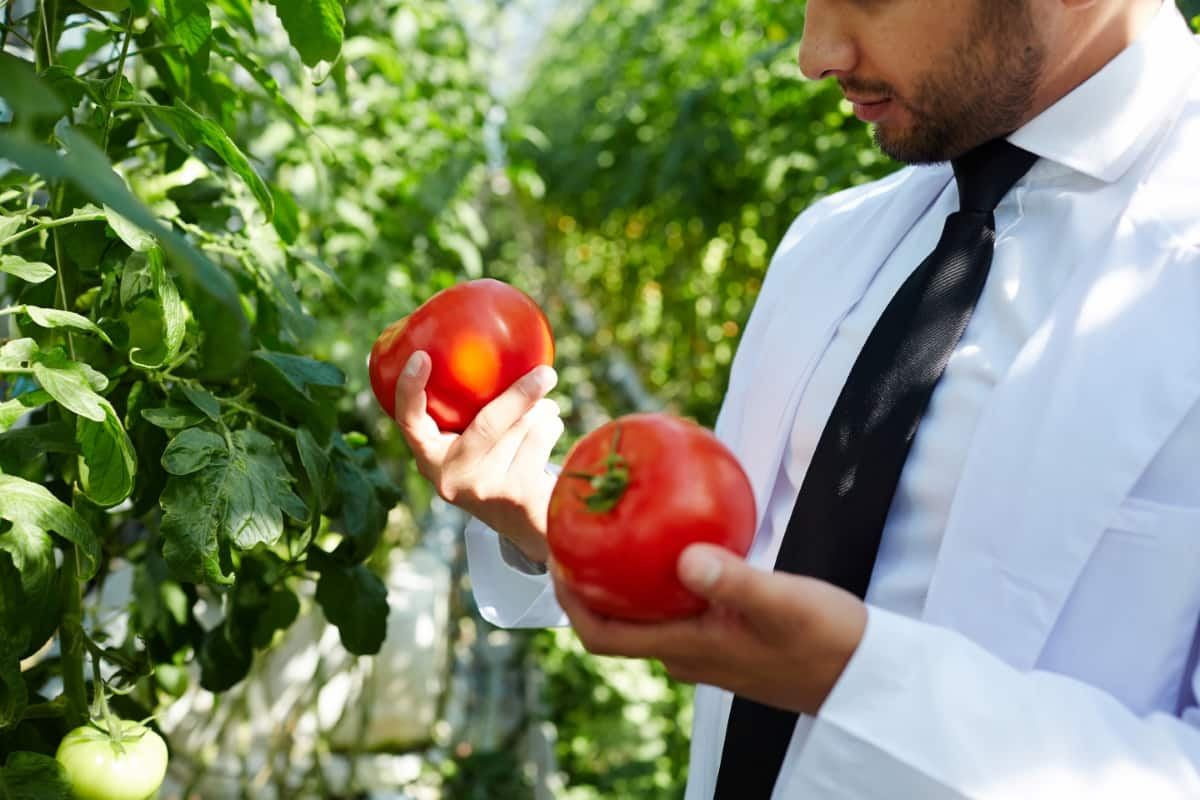In a small village in India, Ramesh Kumar, a farmer, defied the odds by earning an astounding 4 lakhs per acre from his tomato farm, showcasing the potential of 1 acre-land farming. His approach to increasing farm income per acre was a blend of innovative and traditional practices. Ramesh’s story is a testament to what can be achieved with the right strategies, serving as a guiding light for farmers who aspire to learn how to earn 1 lakh per month from 1 acre of land.

How Ramesh Earned Income of 4 Lakhs Per Acre from His Tomato Farm
Adopting Modern Farming Techniques
Ramesh’s journey to success began with the realization that traditional farming methods were limiting his farm’s potential. He embarked on a quest for knowledge, attending agricultural workshops and researching modern farming techniques. His efforts paid off as he implemented advanced irrigation methods, optimized soil management, and employed effective pest control strategies.
These modern techniques not only increased his tomato yield but also ensured better quality produce, which was key in achieving his remarkable income. His transition from traditional to modern farming methods demonstrates the impact of embracing new technologies and practices in agriculture, proving that with the right approach, even small-scale farms can yield significant profits.
Utilizing High-Quality Seeds
One of the pivotal decisions in Ramesh’s farming venture was choosing high-quality tomato seeds. He selected varieties that were disease-resistant, high-yielding, and well-adapted to the local climatic conditions. This strategic move resulted in healthier crops and higher yields, significantly contributing to his increased income.
The decision to invest in quality seeds paid off, as it not only enhanced the productivity of his farm but also provided a higher market value for his produce. His success in this area highlights the importance of selecting the right seed varieties to achieve a profitable and sustainable farming business.
Efficient Water Management
In addressing the challenge of water scarcity, a common issue in agricultural regions, Ramesh implemented a drip irrigation system on his farm. This system, which delivers water directly to the plant roots, significantly reduces water wastage and improves irrigation efficiency. The efficient water management approach adopted by Ramesh was instrumental in maintaining the health of his tomato plants and maximizing crop yield, proving that effective resource management is crucial in sustainable farming practices, especially in areas with limited water resources.
Integrated Pest Management
Ramesh’s approach to pest control involved an integrated pest management strategy that combined the use of natural predators, crop rotation, and organic pesticides. This holistic approach helped in effectively managing pests while reducing reliance on chemical pesticides, thus lowering production costs and ensuring his tomatoes were free from harmful residues.
In case you missed it: Everything You Need to Know About Tomato Plant Spacing: Optimal Tomato Plant Distance

His commitment to eco-friendly pest management not only enhanced the quality of his produce but also aligned with the growing consumer preference for organic and sustainably grown food, thereby increasing its marketability.
Market Diversification and Value Addition
Rather than relying solely on selling fresh tomatoes, Ramesh ventured into value-added products like sun-dried tomatoes, tomato puree, and sauces. This diversification allowed him to tap into new market segments and command higher prices for his products. By exploring these additional revenue streams, he significantly increased his farm’s profitability and reduced the risk associated with market fluctuations. His foray into value addition and market diversification is a prime example of how farmers can enhance their income by extending beyond traditional farming practices and exploring innovative product offerings.
Establishing Direct Market Linkages
Understanding the importance of direct market linkages, Ramesh built relationships with local retailers, restaurants, and wholesalers, thereby eliminating middlemen. This strategy ensured that a larger share of the profits from his produce went directly to him. By establishing these direct connections, he was able to secure better prices for his products and gain more control over the sales process, proving that direct market access is a key factor in maximizing farm income.
Continuous Learning and Adaptation
Ramesh’s success is also attributed to his unwavering commitment to continuous learning and adaptation. He kept himself updated with the latest agricultural trends and practices by networking with other successful farmers and attending industry conferences. This approach enabled him to adapt to changing market conditions and maintain his competitive edge. Ramesh’s story emphasizes the importance of lifelong learning and adaptability in the dynamic field of agriculture, showcasing how staying informed and adaptable can lead to lasting success in farming.
In case you missed it: How to Prevent Tomato Rot Naturally: How to Control with Natural and Organic Treatment

Maximizing Yield Through Advanced Techniques
Ramesh didn’t stop at just adopting modern farming methods; he continually sought ways to maximize his yield through advanced techniques. He meticulously monitored the growth of his plants, adjusting fertilization and irrigation based on their developmental stages. Utilizing precision agriculture methods, he efficiently managed resources such as water, fertilizers, and pesticides, resulting in a substantial boost in per-acre crop yield.
This approach not only improved the quality of his tomatoes but also reduced wastage and increased overall efficiency. His keen attention to detail and willingness to implement cutting-edge agricultural practices were crucial in achieving high yields, which directly translated to increased income. Ramesh’s approach to maximizing yield demonstrates how a scientific and data-driven approach to farming can result in higher productivity and profitability.
Building a Resilient Agricultural Business
Ramesh also understood the importance of building a resilient agricultural business capable of withstanding various challenges. He diversified his income sources by intercropping and practicing mixed farming, which provided him with a safety net in case of tomato crop failure. Additionally, he maintained a healthy soil ecosystem by practicing crop rotation and using organic matter for soil fertility. This not only ensured the long-term sustainability of his land but also reduced dependency on chemical fertilizers.
In case you missed it: Costs and Profits for 1 Acre and 1 Hectare Tomato Production: Economics and Project Report of Tomato Farming

Furthermore, Ramesh set aside a portion of his profits for emergency funds to cover unexpected expenses, such as pest outbreaks or market downturns. By thinking ahead and preparing for potential challenges, he ensured the longevity and resilience of his farming business. Ramesh’s strategic planning and risk management are key lessons for any farmer aiming to create a sustainable and profitable agricultural enterprise.
Conclusion
Ramesh Kumar’s journey from a small-scale farmer to a successful agricultural entrepreneur is a remarkable example of how adopting modern farming techniques, utilizing quality seeds, managing resources efficiently, diversifying markets, establishing direct linkages, and continuously adapting to new challenges can transform a farm’s profitability. His story serves as an inspiration to other farmers, illustrating that with the right strategies and a commitment to innovation, even a small piece of land can yield substantial income.
- Feed Your Flock for Less: Top 10 Tips to Save on Chicken Feed
- Ultimate Guide to Ossabaw Island Hog: Breeding, Raising, Diet, and Care
- Hatching Answers: The Top 10 Reasons Your Chickens Aren’t Laying Eggs
- Eggs and Economics: Breaking Down the Cost of Raising Backyard Chickens
- Defend Your Greens: Proven Methods to Keep Iguanas Out of Your Garden
- Ultimate Guide to Cinnamon Queen Chicken: A Comprehensive Guide for Beginners
- Ultimate Guide to California Tan Chicken: Breeding, Raising, Diet, Egg-Production and Care
- Ultimate Guide to Marsh Daisy Chicken: Breeding, Raising, Diet, and Care
- 10 Types of Chicken Farming Businesses You Can Start for Profits